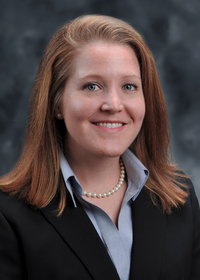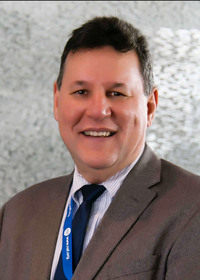Information Possibly Outdated
The information presented on this page was originally released on March 25, 2004. It may not be outdated, but please search our site for more current information. If you plan to quote or reference this information in a publication, please check with the Extension specialist or author before proceeding.
MSU graduate to head U.S. food safety agency
MISSISSIPPI STATE -- A Mississippi State University veterinary graduate is helping to ensure the country's supply of meat, poultry and egg products remains safe, wholesome and accurately labeled.
Dr. Barbara Masters, who graduated from MSU's College of Veterinary Medicine as Barbara Henning in 1987, was recently selected to serve as acting U.S. Food Safety and Inspection Service administrator. She will serve in this role until Pres. George W. Bush appoints a permanent administrator.
"Dr. Masters brings a wealth of expertise and experience to this position, having served with the Agency in a number of important roles," said Dr. Elsa Murano, undersecretary for food safety with the U.S. Department of Agriculture. "Dr. Masters was instrumental in helping the Agency transition to the Hazard Analysis and Critical Control Points food safety system, and she has a fundamental understanding of Agency programs and policies."
Masters credits the lessons learned at MSU-CVM for a successful career in public health and food safety.
"MSU-CVM taught me to take a systems approach to solving problems, and that has served me very well throughout my career," Masters explained. "In vet school, the systems were related to animal health; at FSIS, the systems relate to product health (safety), sanitation, HACCP systems and food security. However, the thought process utilized is very similar."
As acting FSIS administrator, Masters provides direction and leadership to the 10,000 inspectors and veterinarians whose job is to protect public health.
"It is a rewarding experience to oversee an agency whose mission touches the lives of millions of Americans, as well as consumers around the world," Masters said. "The work is continuously varied and every day brings a new challenge. I exercise my veterinary skills in making determinations about food safety policies, as well as my communications skills when presenting the reasoning behind those policies to Congress, industry and consumer groups."
Masters previously served FSIS as deputy administrator for field operations, director of the slaughter operations staff, branch chief in processing operations, and staff officer for the slaughter operations staff and the technology transfer and coordination staff. She has also served as an inspector-in-charge for two slaughter plants in Hot Springs, Ark.
While she originally intended to focus her career on preventive food animal medicine, Masters sees an intimate relationship between that field and the food safety field.
"Healthy food begins with healthy animals, and our veterinarians do a terrific job of making sure only healthy animals enter the food supply," she explained.
She believes food safety is a good optional career track for veterinarians who want to lead the way to the future of food safety.
"This is an exciting and challenging career path, and I am very fortunate to be serving during a time when our policies are making a positive impact on the rate of foodborne illness in America," Masters said. "Public practice veterinarians are in large demand throughout the country, and I believe Mississippi State is stepping up to the challenge."
Building relationships between the veterinary college and outside organizations is key to placing MSU veterinary students in roles where they have a chance to see the options available to veterinarians in the area of food safety and public health.
"We're looking for new opportunities all the time that we can offer to our students," said Dr. Hart Bailey, an associate professor in the CVM pathobiology and population medicine department. "In addition to veterinary curriculum, the various courses our students take, along with the externship experiences in food safety and public health, make them uniquely qualified to move into areas that traditionally have been filled by people in other fields."
Some of these students have worked with poultry companies or organizations that serve commodity groups, like the National Turkey Federation, while others have worked with the FSIS or the Centers for Disease Control and Prevention. Bailey said he and others at the CVM strive to make new contacts in these areas whenever possible.
These efforts already have paid off with one tangible cooperative effort: MSU-CVM Dean Dr. John U. Thomson, Bailey and FSIS representative Dr. Mariano de Mola recently signed a memorandum of agreement that established a program for student volunteers to work with the food safety agency. This program mimics a more formal 16-week program where students are actually paid for their work. The abbreviated version allows students to decide if the 16-week program is right for them.



